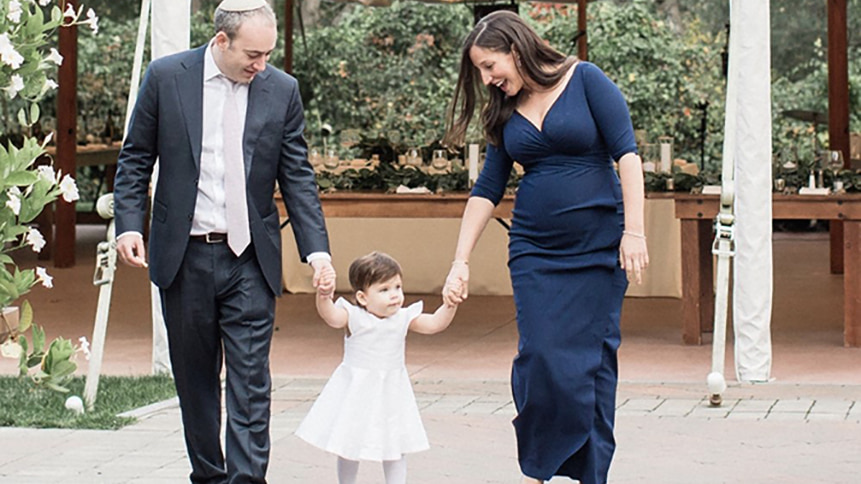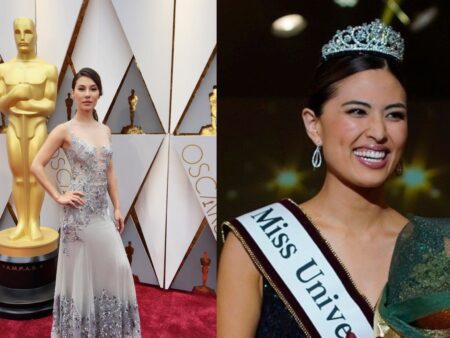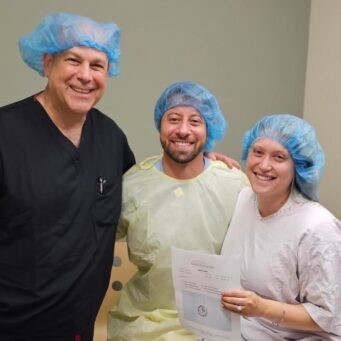
I returned to the fertility clinic when our daughter was nine months old. This was earlier than my husband was comfortable trying for another baby.
“Let’s just focus on her for right now,” he begged me. “We spent so long trying for her. Let her have her first year where it’s only about her. After her birthday, we can start again.”
I agreed with him. But I also knew, from the eleven IVF cycles that it took to get our daughter, that there are always unanticipated delays. I was not willing to take any risks. After eleven rounds of IVF, I knew how to prepare myself. We would not undergo a cycle until after her first birthday, but well in advance of that date I made sure that we took care of anything within our control, like testing and paperwork that might cause a delay.
I knew how to focus on the practical things that needed to be done, but the ups and downs of infertility the second time around were still mentally and emotionally challenging—in both unfortunately familiar ways and in new ways.
At the first appointment, my doctor’s assistant said that to meet our proposed timeline we’d have to cancel our December vacation to a Zika zone. I was not willing to do that. We had spent four years canceling vacations and plans, backing out of commitments, fighting for our marriage that was strained beneath the burden of IVF. We had booked this vacation soon after our daughter was born, and we weren’t willing to cancel. We were a family now. The family we had came first, and the family we still wanted to create came second. We took our vacation, then underwent our cycle two months later.
I resent it when people comment about how easy it seems to have been this time around. It took “only” two tries, unlike the eleven it took to get our daughter. But when the twelfth try failed, the first failure after I’d had a baby, it sent me back down the same spiral I’d experienced during all of the failures before our daughter was born. To the time when I chopped off my entire ponytail in the midst of an IVF miscarriage. To the time I threw the bottle of soy sauce at my husband, but it missed his face and shattered against the countertop. These were not times I wanted to return to.
I had a baby now, so I didn’t feel the same desperate, lonely sadness that I’d felt before. In fact, I’d willfully let go of a lot of those emotions. But I recalled, in the early weeks after my daughter was born, feeling a different sort of loneliness. I missed going to sleep and feeling her kicks in my belly. I missed cradling my baby bump. It wasn’t until she stopped being a newborn baby and started to become a person that I stopped wishing to tuck her back inside my belly. It was easy to forget then how hard our years of IVF were. I wanted another pregnancy, another baby. I didn’t want to think about what I had to go through again to get that.
‘Do you have it in you,’ I asked him, ‘for more IVF? I don’t know if I do. But I also know that I don’t feel complete with one child. Is that horrible to say?’
Throughout this period, though, I admit that my thoughts and feelings flipflopped a few times. My husband and I questioned whether or not this was worth it in ways we hadn’t before. We had a baby now. We should count our blessings.
IVF with a baby was hard in new ways. There were new logistics to navigate—childcare during appointments and procedures was the biggest one. Now, rather than desperate lonely sadness, I felt angry, resentful frustration. Every appointment that pulled me away from my daughter, every phone call that came in from the clinic just as I was feeding her dinner, the regulations after transfer that said I couldn’t carry her because she weighed too much—were infuriating. This perfect girl whom I’d worked so hard for: I hated being forced to cast her aside to any degree.
But my husband and I also knew that we needed to give her a sibling. We believed it was too much pressure on her to be all of her parents’ hopes and dreams, to be everything we ever wished for. She was my husband’s only blood relative. We were willing to go through all of the craziness again to try and give her a sibling.
When we had become pregnant with our first daughter, Rosie, we had agreed early on that we’d only make three efforts for our next baby. If it failed all three times, we said we would return to the surrogacy agency, where we’d signed paperwork just before our successful IVF try.
After Rosie was born, though, my husband acknowledged that because we now had a child and the stakes were different, he wasn’t sure about the surrogate route. “Before, when it meant we wouldn’t otherwise have a kid, it was different. Now, I just don’t know,” he said. “We have her. I don’t know if I want to go there again.” I understood. I agreed, even though I hated to admit that.
For baby two, after the first try failed, I emailed my husband while Rosie napped and I sat crying on the couch. I hadn’t slept the night before. I hadn’t slept much since the cycle failed. “I didn’t have any of this anger, anxiety, or sadness during this whole last year,” I wrote. “The moment we started IVF again, it returned. And I hate it. When I’m with her, everything is wonderful. I am my best self when I am her mom. For now, I’d like to view this as our last cycle. If it fails, we can reevaluate in the fall, but I can’t continue in this headspace, and it seems to be directly related to IVF. I’m doing my best but I can’t escape it. I’d rather spend my energy focusing on my daughter.”
He told me that sounded fair, but he’d also learned through the years that when I’m in a hormone-induced emotional frenzy, it’s best to just agree with me.
IVF with a baby was hard in new ways. There were new logistics to navigate—childcare during appointments and procedures was the biggest one. Now, rather than desperate lonely sadness, I felt angry, resentful frustration.
The night before the pregnancy test was a return to our old habits. All the ways we’d grown individually, in our marriage, and as parents evaporated the moment we put our daughter to bed. I don’t recall exactly what we said to each other. I do recall that I threw some ugly accusations at him. After he administered my progesterone injection, he stormed off to bed and I drank an unreasonable amount of wine. It didn’t matter. It was going to fail. Our daughter would not have a sibling. I was done.
I felt hungover in the morning—from the wine, the fighting, the crying, the hormones. My husband stayed home from work so we’d be together as a family when the clinic called. We took our daughter out to lunch and to music class. Whatever happened the night before, we both knew it was the product of IVF, the emotional whiplash of being back in the dark place where we’d spent so many years. But today, in the warm May sunshine, we were parents to a beautiful little girl. He steered her stroller with one hand, and held my hand in the other.
We received good news that day. I was pregnant, though the pregnancy would give us many serious scares in the coming few months—a bumpy ride on the HCG rollercoaster (“you should prepare yourselves to lose this pregnancy” the nurse cautioned us), a subchorionic hematoma that left me contracting and bleeding in the middle of Trader Joe’s, an abnormal ultrasound that questioned whether our baby had a functioning stomach.
Each of the crises was, thankfully, resolved. The bumpy HCG ride was a very early vanishing twin; the sucbhorionic hematoma bled out with no harm to the baby and no complications for me; the follow-up ultrasound revealed a perfectly normal stomach.
As we walked to the doctor for the follow-up stomach scan, I asked my husband what we would do if, in fact, the scan revealed we’d have to terminate the pregnancy. “Do you have it in you,” I asked him, “for more IVF? I don’t know if I do. But I also know that I don’t feel complete with one child. Is that horrible to say? We have the baby we always wanted. She should be enough. She is enough. But…..” I trailed off. He squeezed my hand. “Let’s just go step by step,” he said. “Let’s hope it doesn’t come to that.”
I’m now in the midst of my third trimester with this second baby. It’s challenging to chase my active, nearly two-year-old daughter around all day as my stomach expands, but it’s the greatest challenge I’ve ever known. I’m already feeling sad that this is likely our last baby. We both feel that, while it took fewer cycles, “easier” is not the word we’d use to describe achieving this pregnancy. We can’t imagine ourselves undergoing more IVF. “I never want to stick a needle in your ass again,” my husband joked on the night of my last progesterone shot. But then I look at my daughter. When I pick her up, her little tush sits on top of my stomach. She rubs my belly and sings to the baby and is so excited to become a big sister. And I realize now that of course I’d have it in me to try again. I can survive whatever challenges IVF throws my way, as can our marriage. It isn’t about me anymore. This is about her. And for her, we’d do anything.
Contributor
Holly Schechter
Holly Schechter is an English teacher at Stuyvesant High School in New York City. She also serves on the editorial staff of Intima: Journal of Narrative Medicine.

Listen to stories, share your own, and get feedback from the community.


















